Tera
An app that provides a tailored solution for people with social anxiety traits to slowly build up their confidence and face their fears.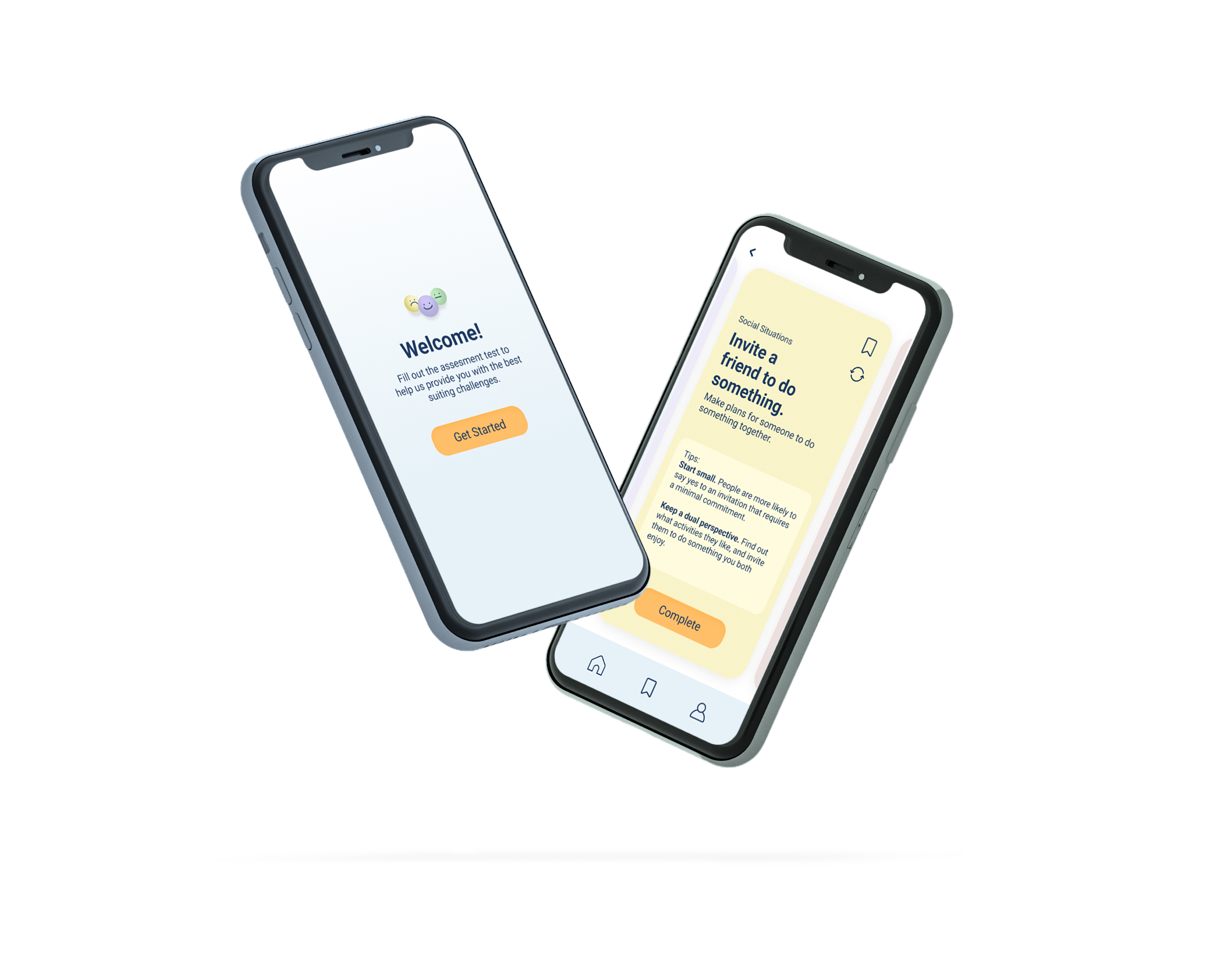
Contributors
Tera is a team project.Literature Research
Pei Jet Teh
Alvina Salim
User Research
Pei Jet Teh
Alvina Salim
User Test
Pei Jet Teh
Alvina Salim
Pei Jet Teh
Alvina Salim
User Research
Pei Jet Teh
Alvina Salim
User Test
Pei Jet Teh
Alvina Salim
Solution Brainstorm
Pei Jet Teh
Alvina Salim
Prototype 1 & 4
Alvina Salim
Prototype 2 & 3
Pei Jet Teh
Final Prototype
Pei Jet Teh
Alvina Salim
Pei Jet Teh
Alvina Salim
Prototype 1 & 4
Alvina Salim
Prototype 2 & 3
Pei Jet Teh
Final Prototype
Pei Jet Teh
Alvina Salim
Literature Research
In 2020, 15 million adults have social anxiety, which is described as “a feeling of discomfort, fear, or worry that involves a concern with being judged negatively, evaluated, or looked down upon by others” (“Facts & Statistic”, 2020; Donaldson, 2011). The COVID-19 outbreak is further increasing risks of social anxiety among the population (Khan et al., 2021).Problem
Encountering group collaboration is inevitable in one’s academic and professional journey.
Social discomfort reduce humans’ opportunity for relationship building, for learning and increase the chance of their abilities going unnoticed.
Some choose not to seek professional help due to different reasons; one reason is due to their acceptance that social anxiety is something common and is “a natural part of life” (Henderson et al., 2014).
Encountering group collaboration is inevitable in one’s academic and professional journey.
Social discomfort reduce humans’ opportunity for relationship building, for learning and increase the chance of their abilities going unnoticed.
Some choose not to seek professional help due to different reasons; one reason is due to their acceptance that social anxiety is something common and is “a natural part of life” (Henderson et al., 2014).
Current Solution
Cognitive Behavioral Therapy (CBT); Medications; Mobile apps to access theraphists and stress relief techniques; Fidget tools.
Although the current solutions are proven to be effective, some people choose not to seek professional help due to different reasons, one of the reasons is due to their acceptance that social anxiety is something that is common and is “a natural part of life” (Henderson et al., 2014).
Cognitive Behavioral Therapy (CBT); Medications; Mobile apps to access theraphists and stress relief techniques; Fidget tools.
Although the current solutions are proven to be effective, some people choose not to seek professional help due to different reasons, one of the reasons is due to their acceptance that social anxiety is something that is common and is “a natural part of life” (Henderson et al., 2014).
Users
30 minutes of interview with 6 users who self-declared as feeling uncomfortable in group discussions. A Social Interaction Anxiety Scale (SIAS) assessment, a clinical approved self-reporting assessment that measures distress of participants when socializing with others in group, was conducted to help analyze whether their discomfort was related to any social anxiety reasons after the interview. 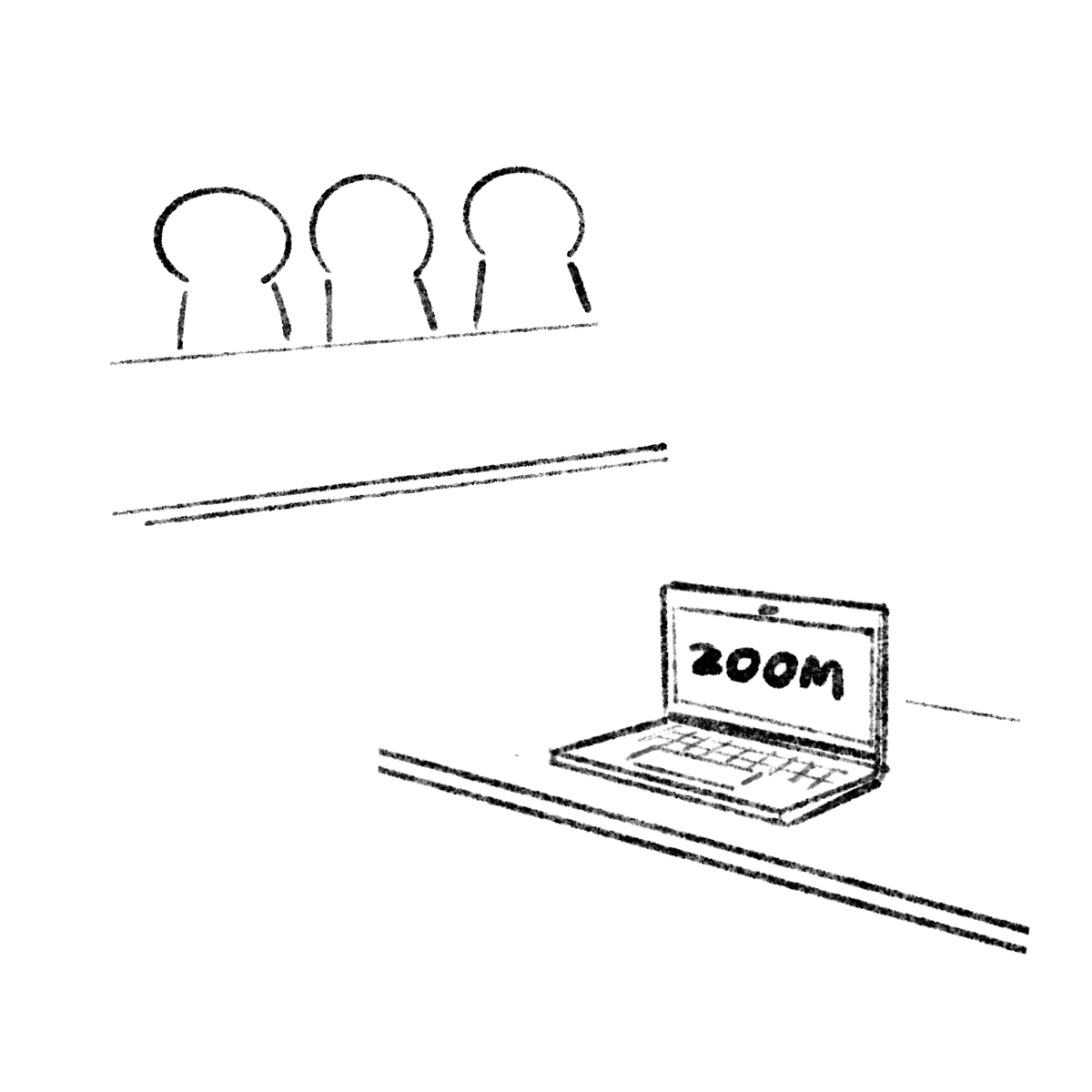
Result
The results we found through the interviews support the traits of the social anxiety class (social phobia and/or traditional social anxiety). Common causes of discomfort found were struggles of speaking up, fear of judgement, and lack of good connection with teammates. However, we found that there is more than just social reasons that creates discomfort in group settings. In addition to social discomfort, unequal workload and inefficient communication between team members also add to the level of discomfort in group collaborations.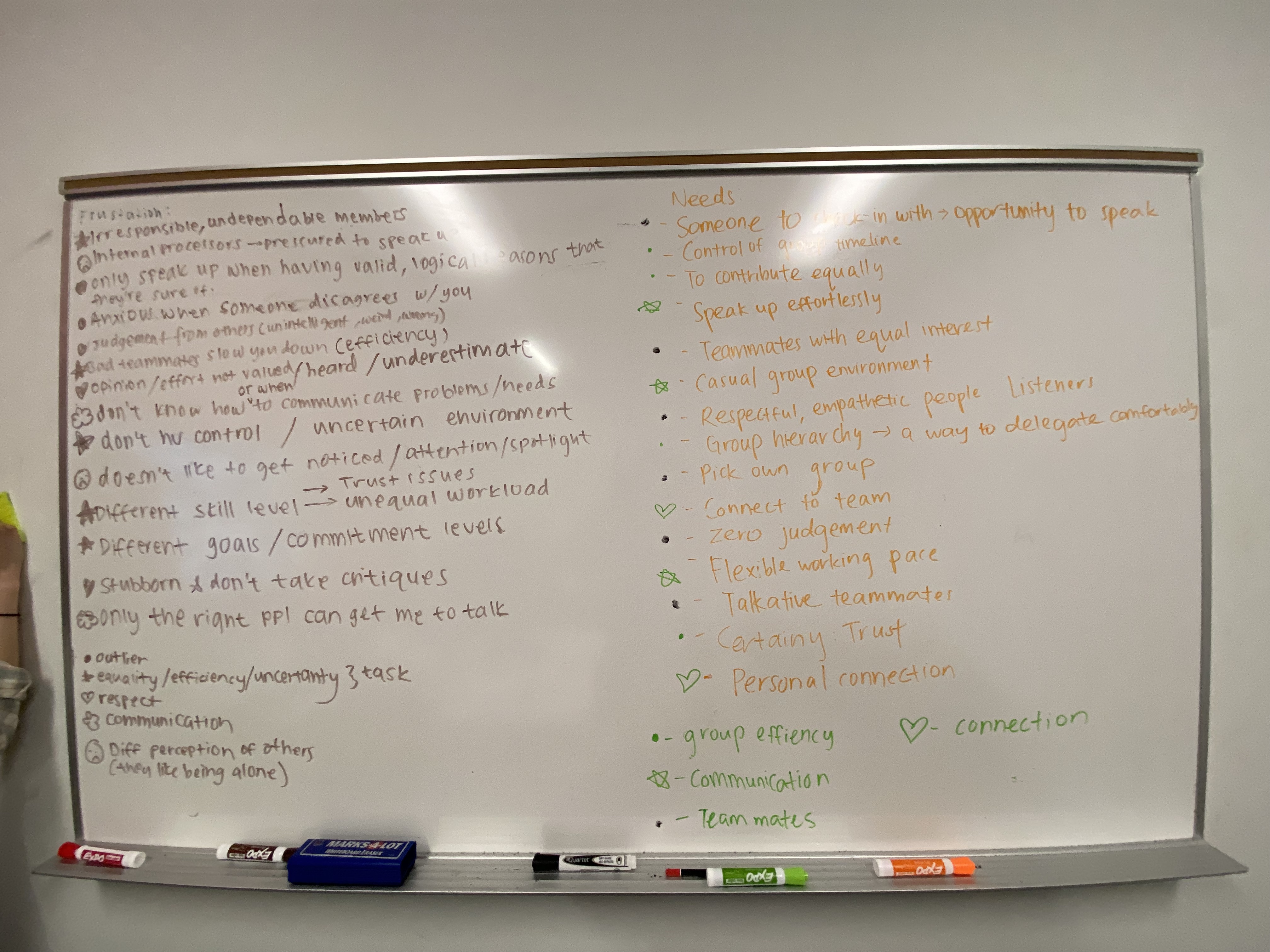
Ideation
How can we help people that are uncomfortable in group settings to comfortably participate in group projects?

Prototype
After categorizing the ideas, 4 main categories were chosen to be moved forward to the prototyping stage.Concept 01: Group Reflection (consider giving each prototypes names)
A mobile app that provides a safe environment for team members to speak up their thoughts about their group experience by giving out anonymous feedbacks.
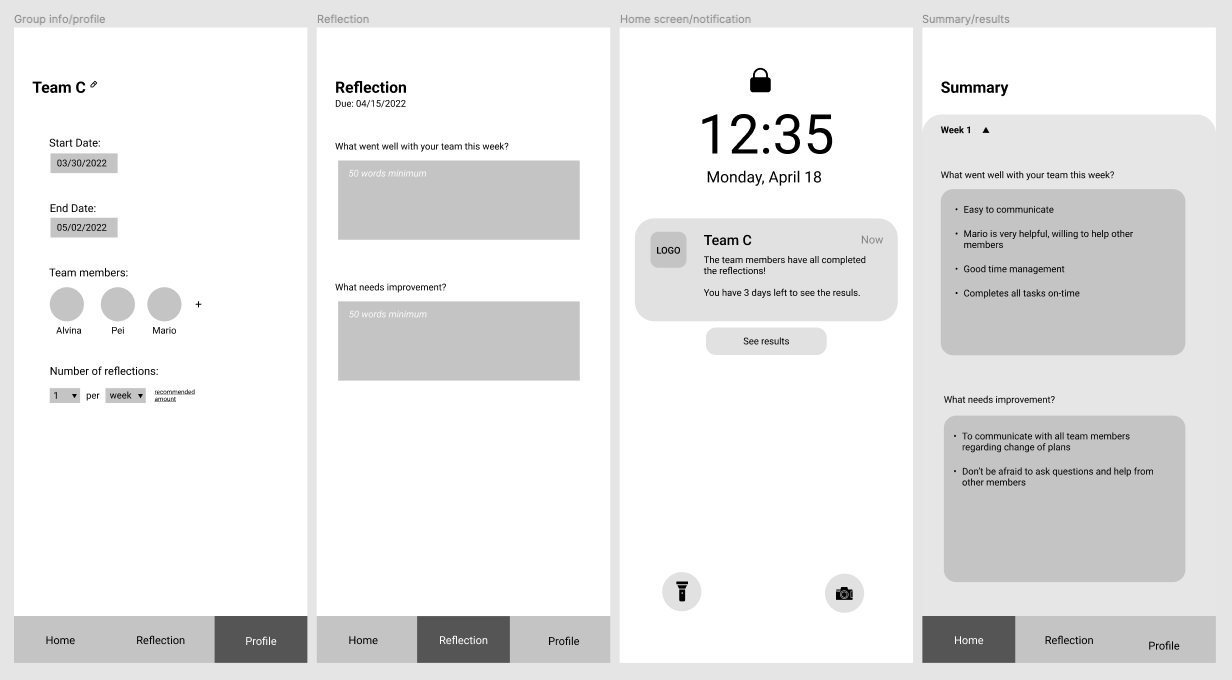
Concept 02: Group Management
A group management platform to solve group discomfort in group work due to poor connection between teammates and/or unclear team and work structure.
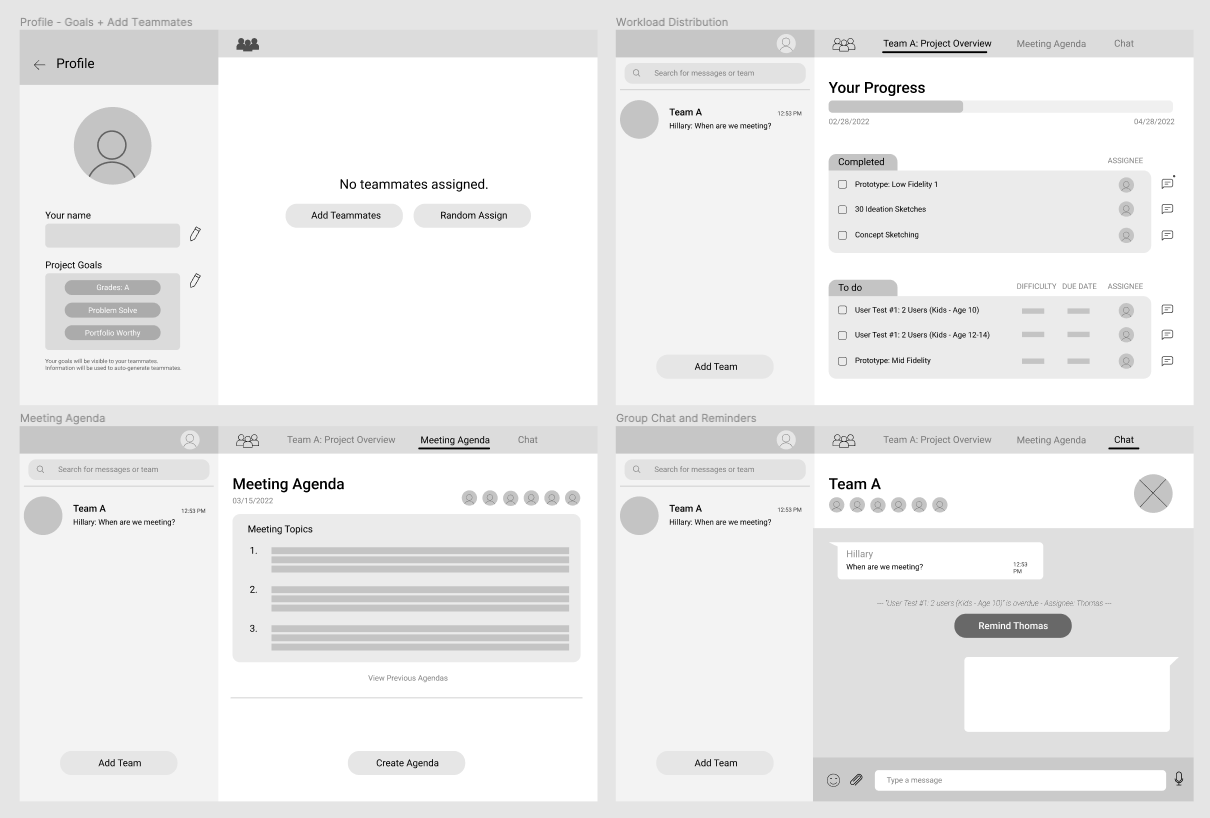
Concept 03: Fidget Reminder Tool
A fidget tool that sends reminders to practice learned stress relief techniques.
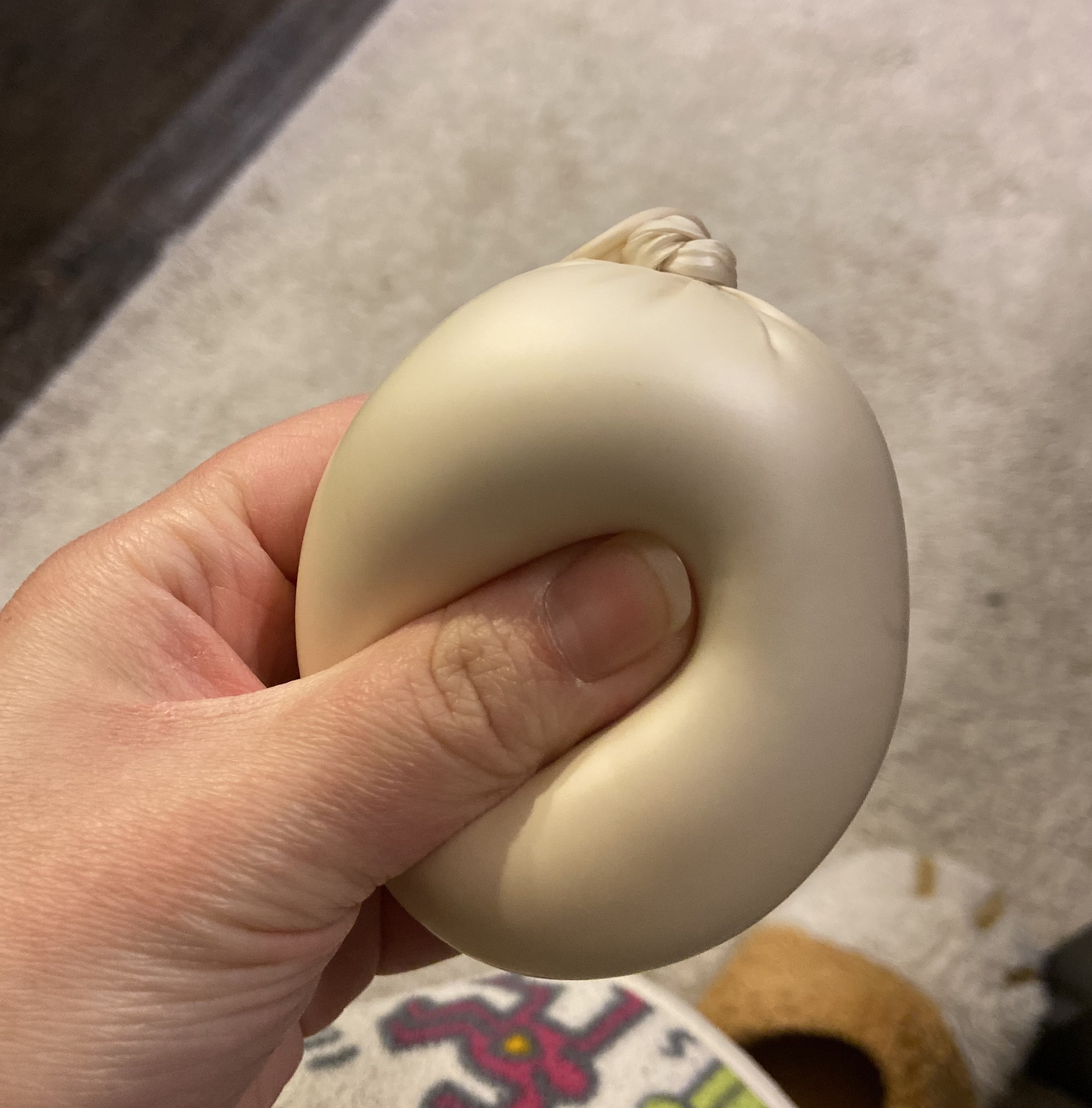
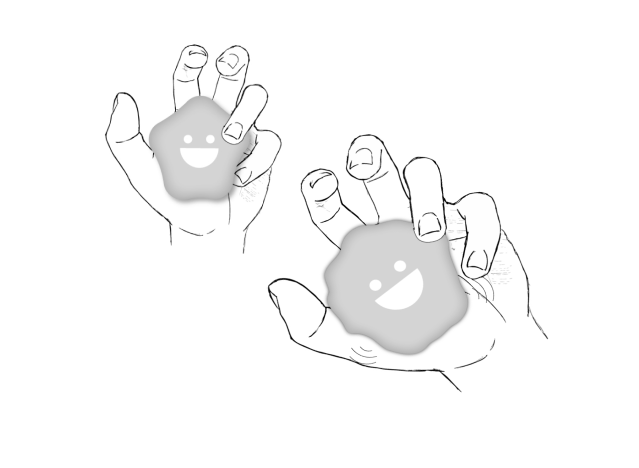
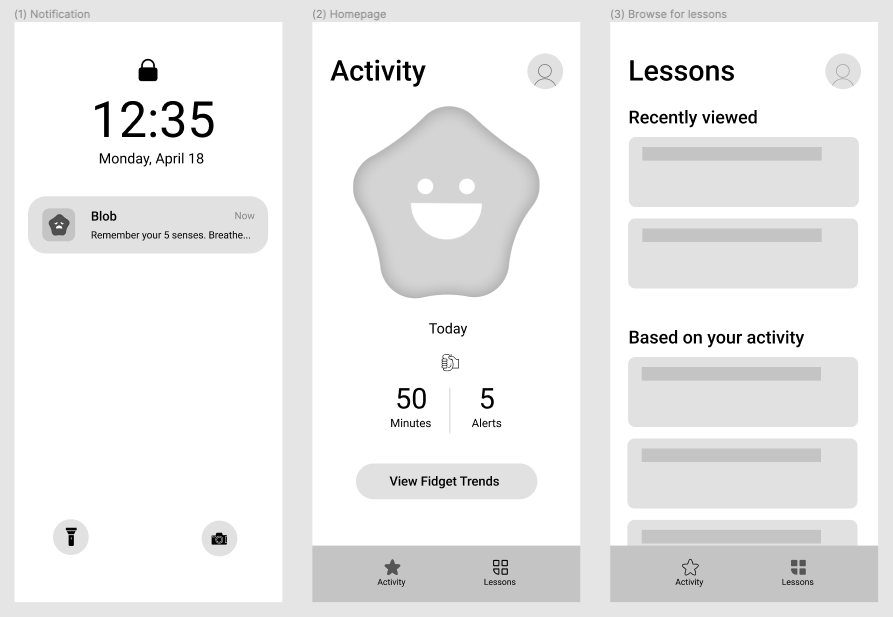
Concept 04: Social Challenges
An app that targets users with social anxiety and have the intrinsic motivation to overcome their social discomfort using exposure therapy.
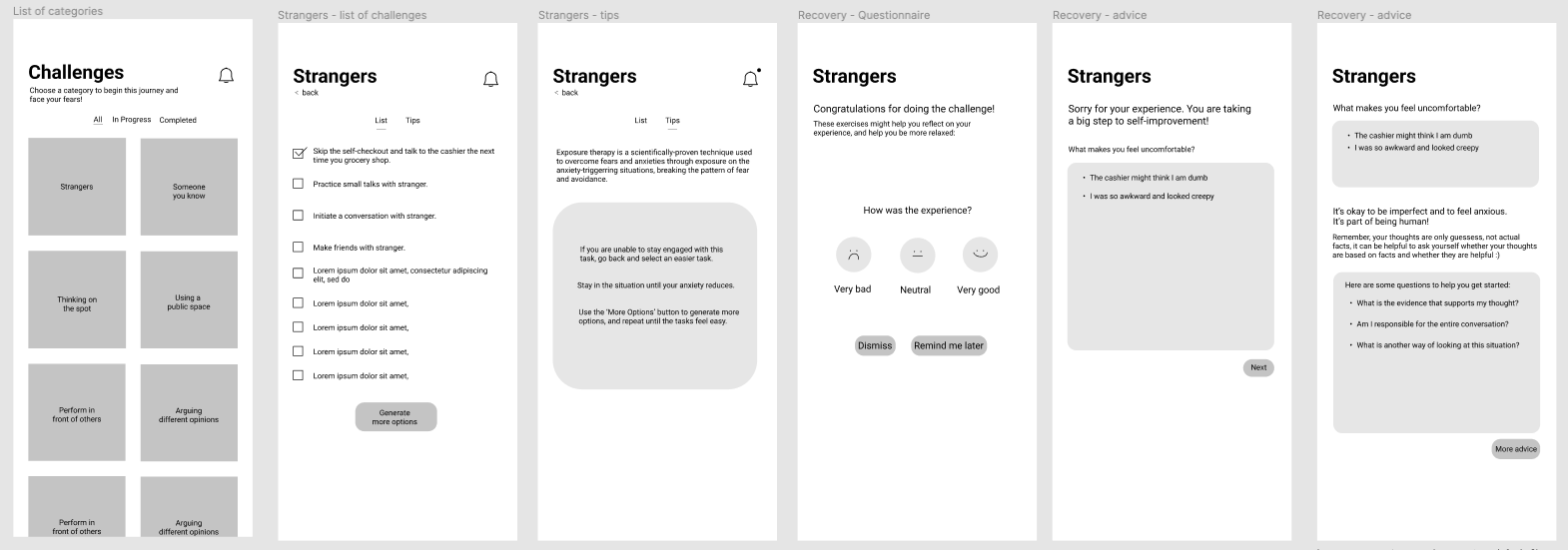
User Test
The goal was to understand which of the 4 concepts (if any) would help our users overcome their social discomfort and how could we improve their experience. 6 user interviews were conducted with the same users from our user research.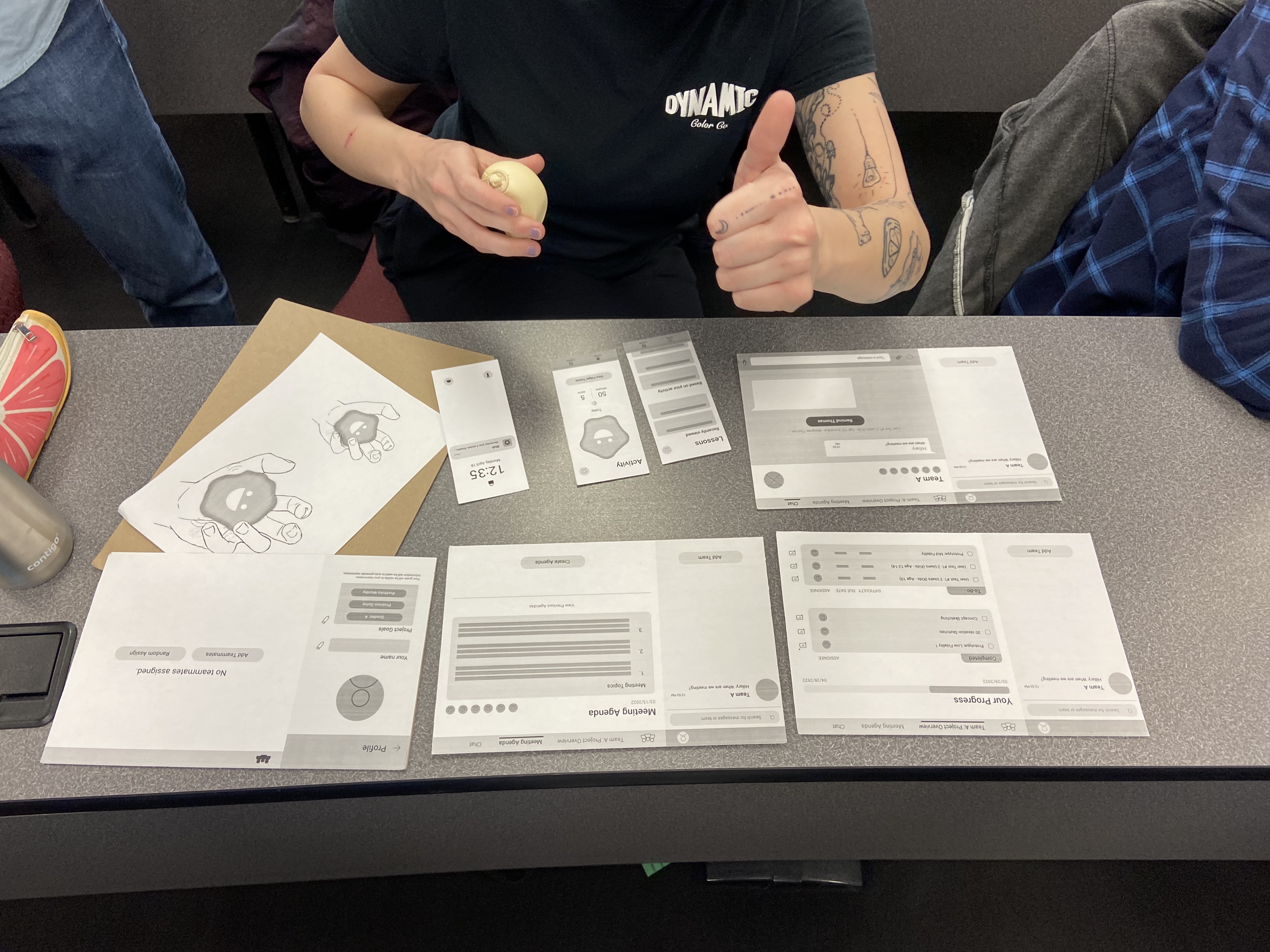
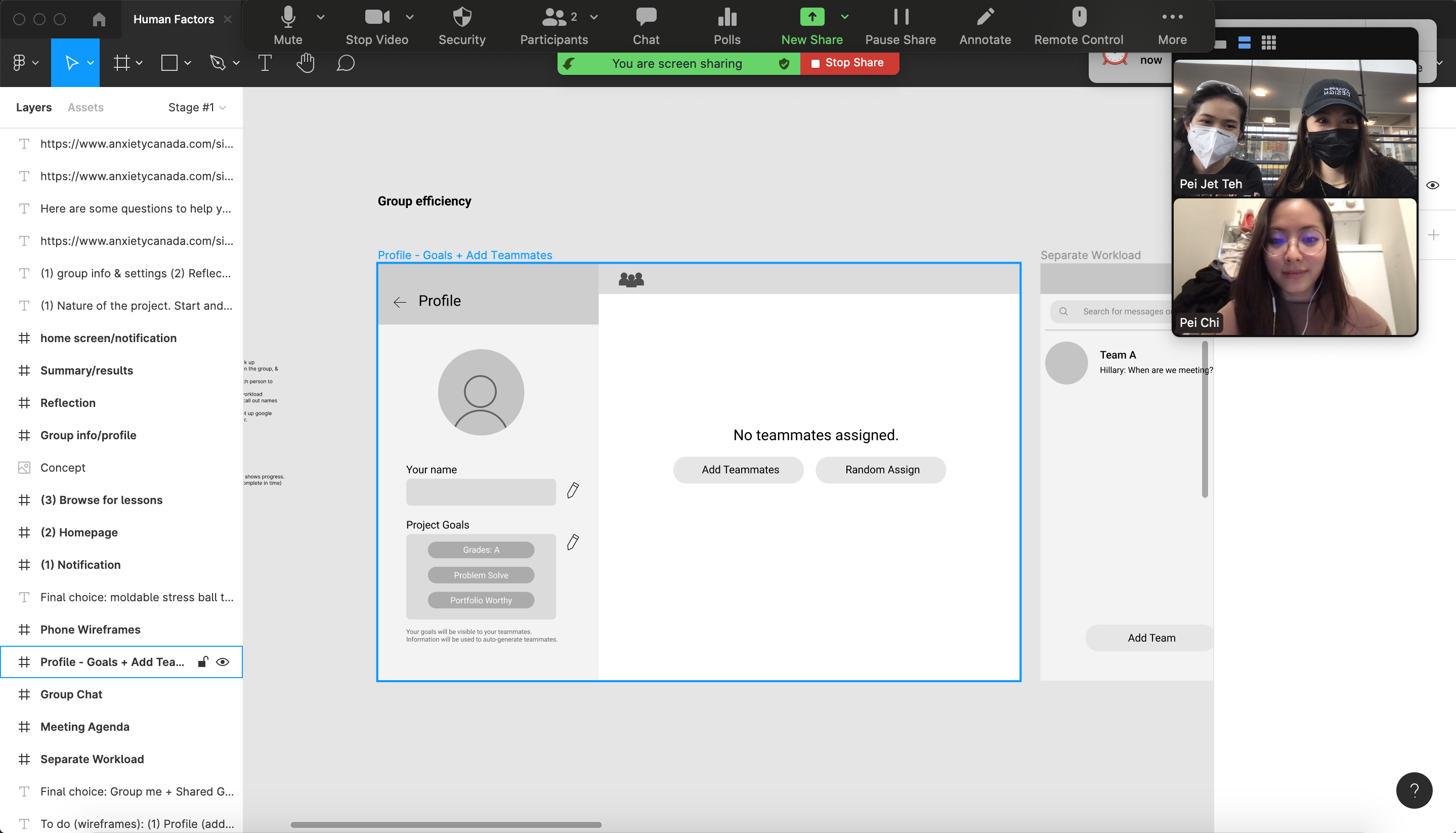
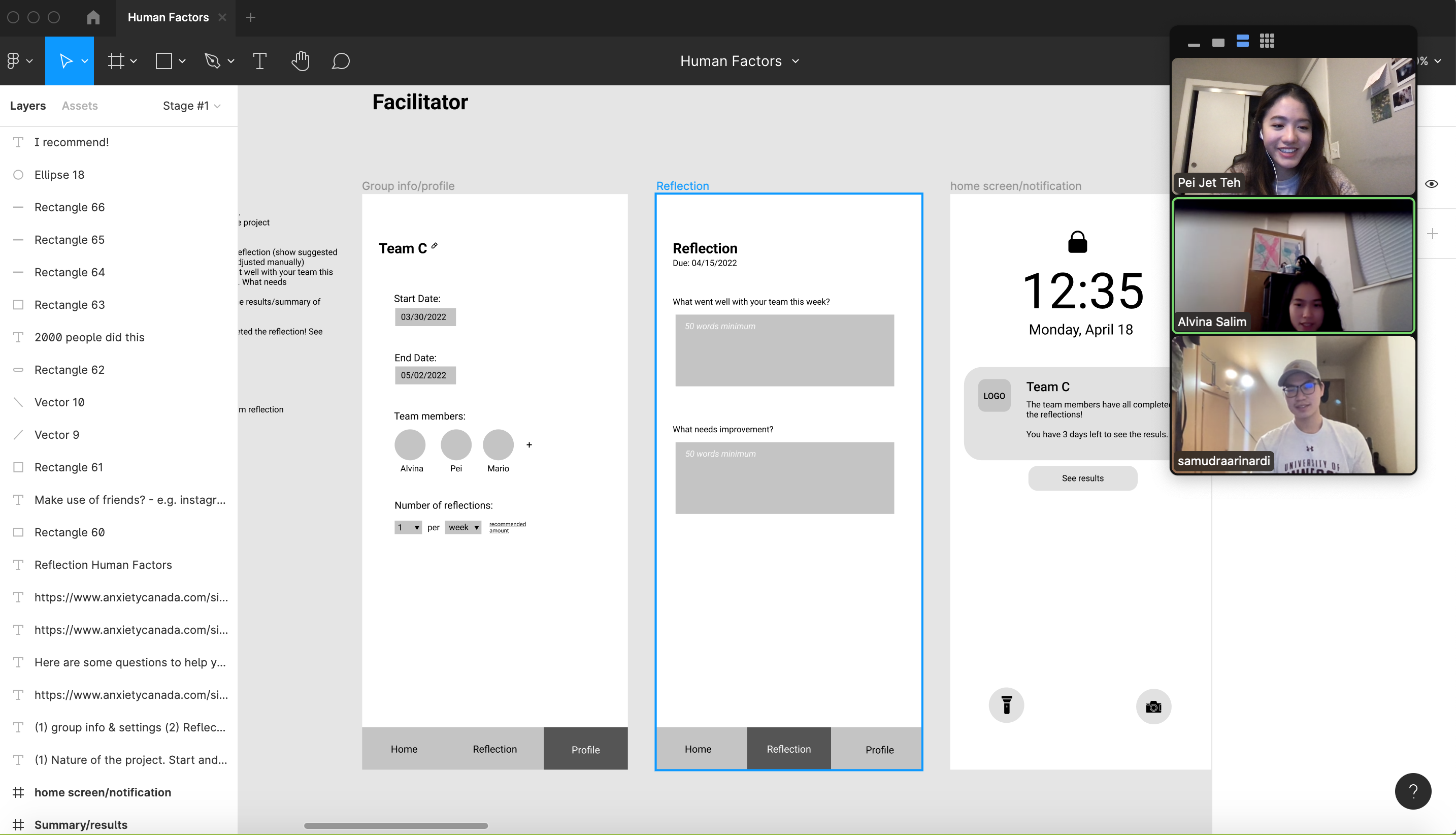
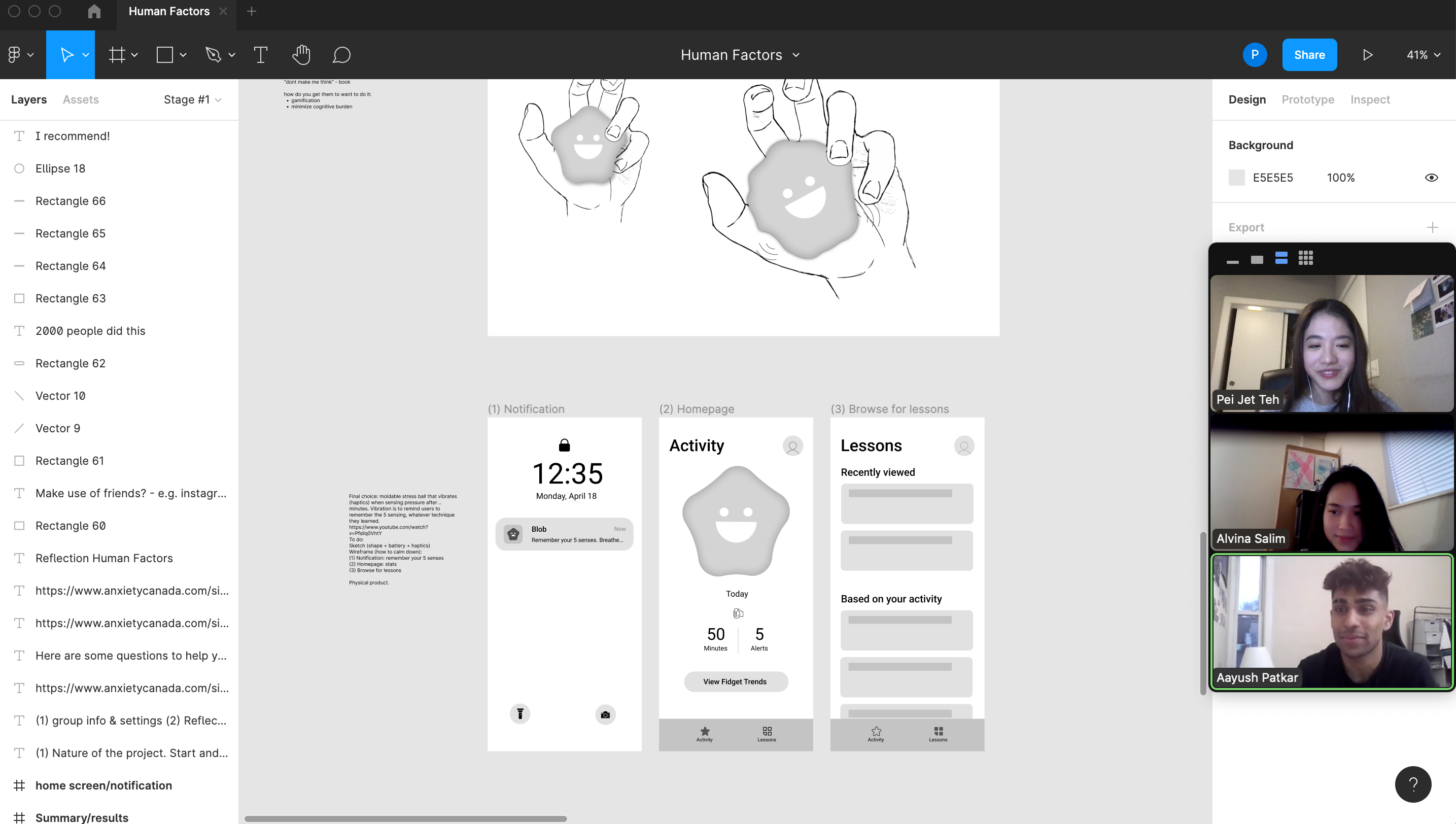
Results
Each prototype provided us with different learnings. One main takeaway was that our users who have intrinsic motivations to overcome their group social discomfort had very different opinions of product usability in terms of reducing group discomfort compared to our users who do not.![100% usability rate for all user types (making it a "design for everyone [which] is design for no one")](https://freight.cargo.site/t/original/i/d0c6c43fc416e9a05c8eea6ce9037e0cd1aa6d97f919e1cee7aac0afa18f4853/Wireframe_Group-Chat.jpg)


In this stage, we decided to narrow our user group to users who have intrinsic motivation to overcome their group social discomfort.
Final Prototype
An iteration of Prototype 4.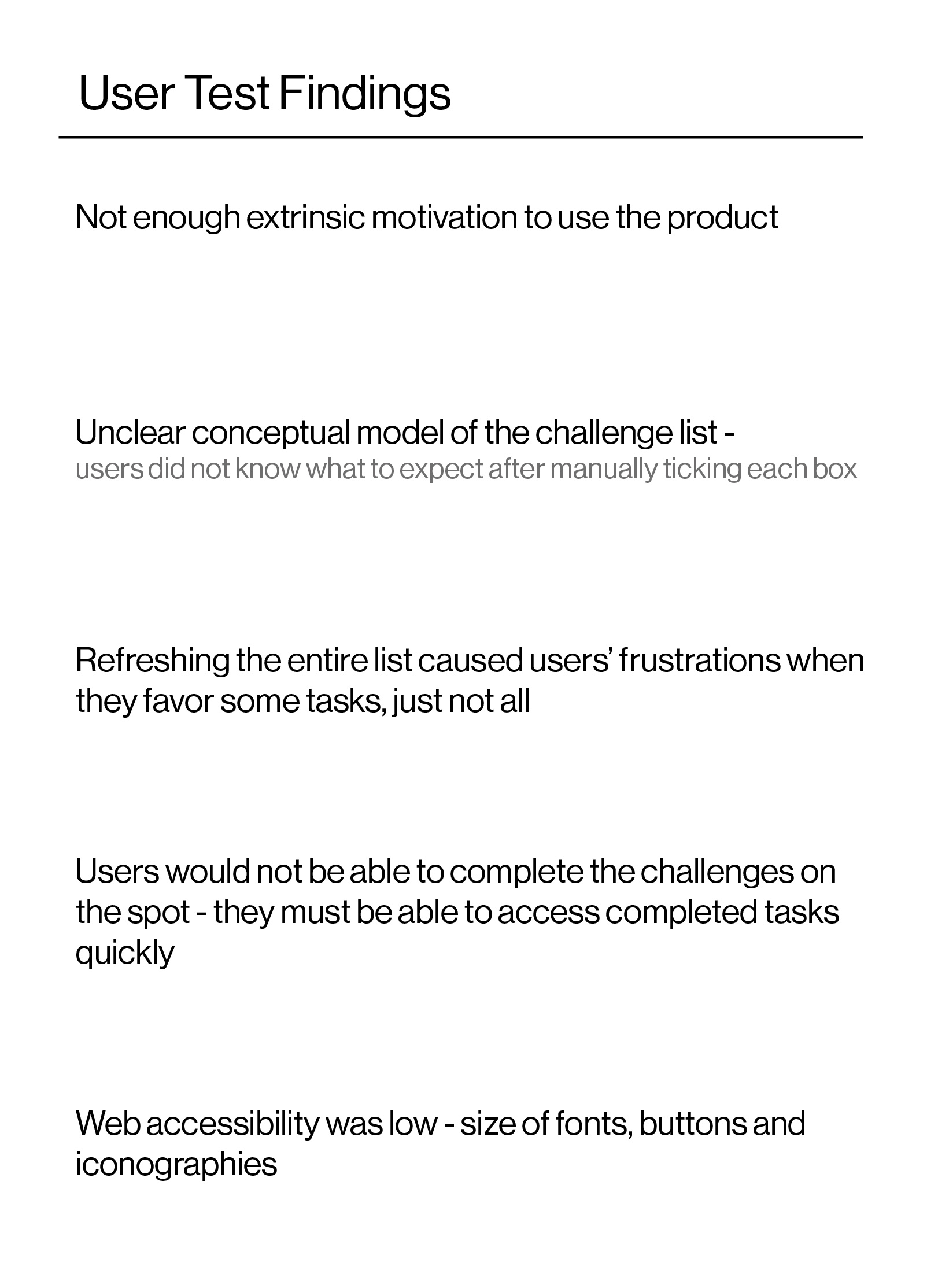

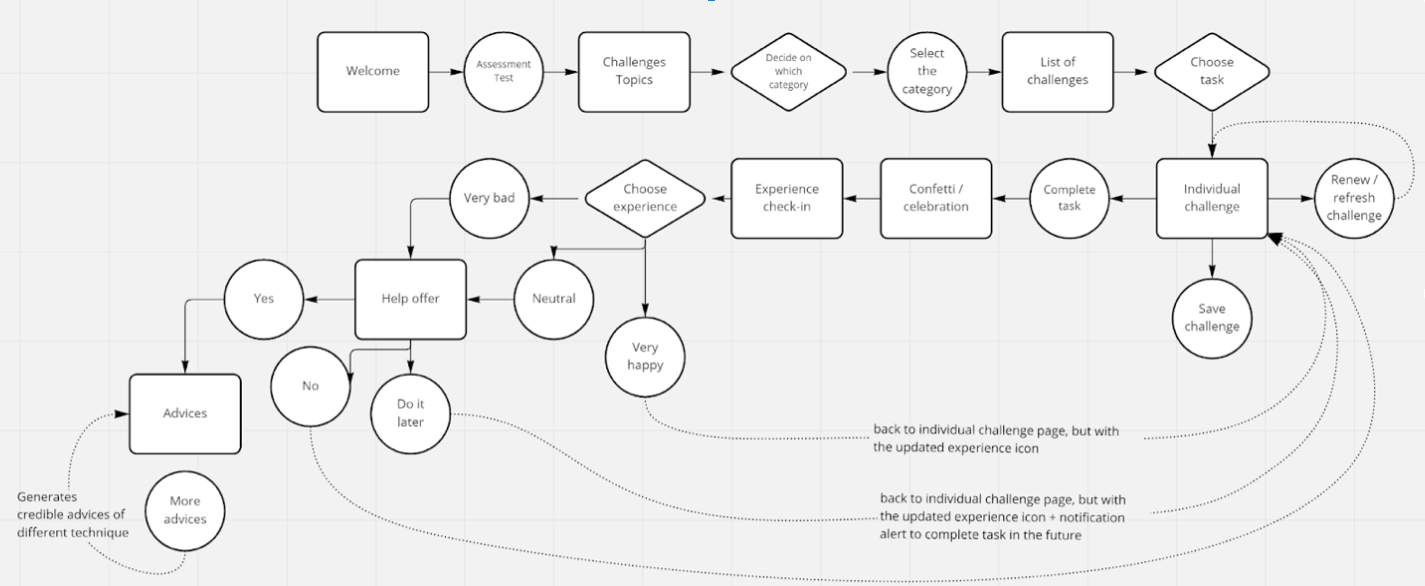
Value of Tera
- Build long term social skills.
- Customized to users’ comfort level - allow users to set goals with their own pace.
- Easy to engage - gamification creates extrinsic motivation.
- Meets tailored physical, cognitive, and emotional ergonomics requirements.
- Does not require professional diagnosis.
Learnings
- Design thinking is not linear, we found insights (e.g. there are two groups of users within our original user group - users who have intrinsic motivations vs users who don’t) from user testing the prototypes, which we would not have thought through in the beginning.
- Categorizing users input was an essential step to process a large quantity of information effectively. In this experience, our users often wanted the same thing but expressed their thoughts differently (e.g., some users often think they are “hurting the feelings of others” or “being too loud” in a group setting and therefore do not speak their thoughts - both statement can be categorized as a struggle with communication).
- The use of a physical human factors requirement table is invaluable when making design decisions on user interactions with the product.